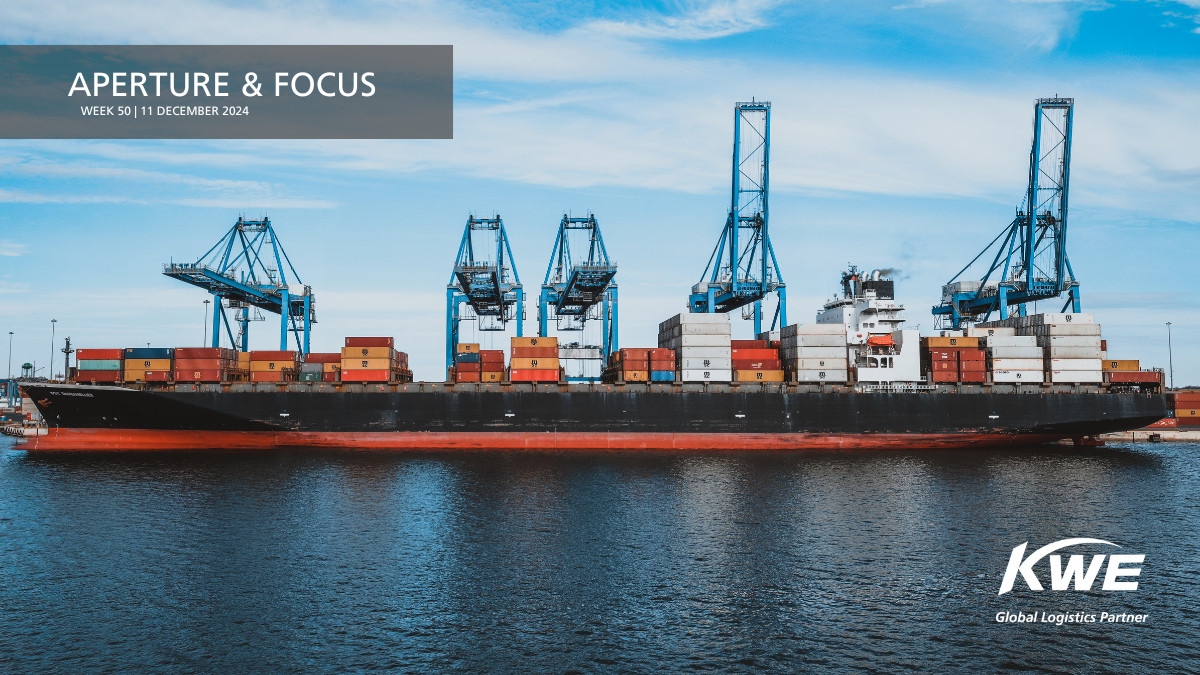Quote
Aperture & Focus: Week 50

Global Aperture
In November 2024, global air cargo demand increased by 10% year-on-year, marking the 13th consecutive month of double-digit growth. E-commerce continues to be the primary driver of this growth, now accounting for as much as two-thirds of airfreight coming out of China and projected to make up a quarter of global air cargo business by 2043. This surge is reshaping logistics strategies and intensifying competition for airfreight capacity.
As 2025 approaches, U.S. air freight forwarders are closely monitoring proposed tariffs on imports from China, which could significantly impact trade flows and logistics planning. These tariffs, coupled with potential adjustments to de minimis rules (the threshold for imports that allows goods valued under $800 to enter duty free), are raising concerns about increased costs and complexities in managing supply chains, particularly for e-commerce shipments.
Regional Focus
Americas
United States: In response to the looming threat of an East Coast and Gulf Coast port strike in January and anticipated tariff increases under the incoming administration, U.S. retailers are accelerating imports to avoid potential disruptions. This has led to a surge in container volumes at major ports, straining capacity and raising concerns about supply chain reliability. The preemptive import activity reflects broader anxieties about trade policy changes and labor instability heading into 2025.
The U.S. air cargo sector is also facing challenges due to a significant shortage of air traffic controllers, leading to flight delays and cancellations that disrupt cargo operations. One notable example is Newark International Airport, where air traffic control staffing was 59% below target levels in November 2024, causing operational constraints that affect both passenger and cargo flights.
Asia-Pacific
China: In November 2024, China's export growth slowed to 6.7% year-on-year, down from 12.7% in October, while imports unexpectedly contracted by 3.9%, highlighting economic pressures. These trends coincide with upcoming tariff increases on Chinese goods, raising concerns about further disruptions to trade and economic stability.
India: Dockworkers at 12 major state-owned ports plan to strike on December 17, citing unresolved wage and retroactive pay issues, potentially disrupting significant ocean freight. While the Indian government has made progress toward resolving the dispute, private ports like Mundra and private container terminals within state-run ports are expected to remain operational, mitigating some of the potential impact.
Europe, Middle East & Africa
On December 6th, the European Union (EU) reached an agreement with the South American Mercosur bloc, finalizing a significant trade deal after over two decades of negotiations to create one of the world's largest free-trade zones, encompassing 780 million consumers. Despite this milestone, France has expressed strong objections, labeling the current terms as "unacceptable" due to concerns over agricultural competition and environmental standards. The agreement now faces a complex ratification process within the EU, where France and other skeptical member states could potentially hinder its final approval.
Belgium: Liege Airport (LGG) has set new records in 2024, with a 16% increase in cargo tonnage driven by strong demand from Asia and the growth of its cargo-focused operations. As nearby Schiphol faces slot reductions and rising fees, Liege's expanding airline and logistics community positions it as a growing hub for freighter operators and shippers.